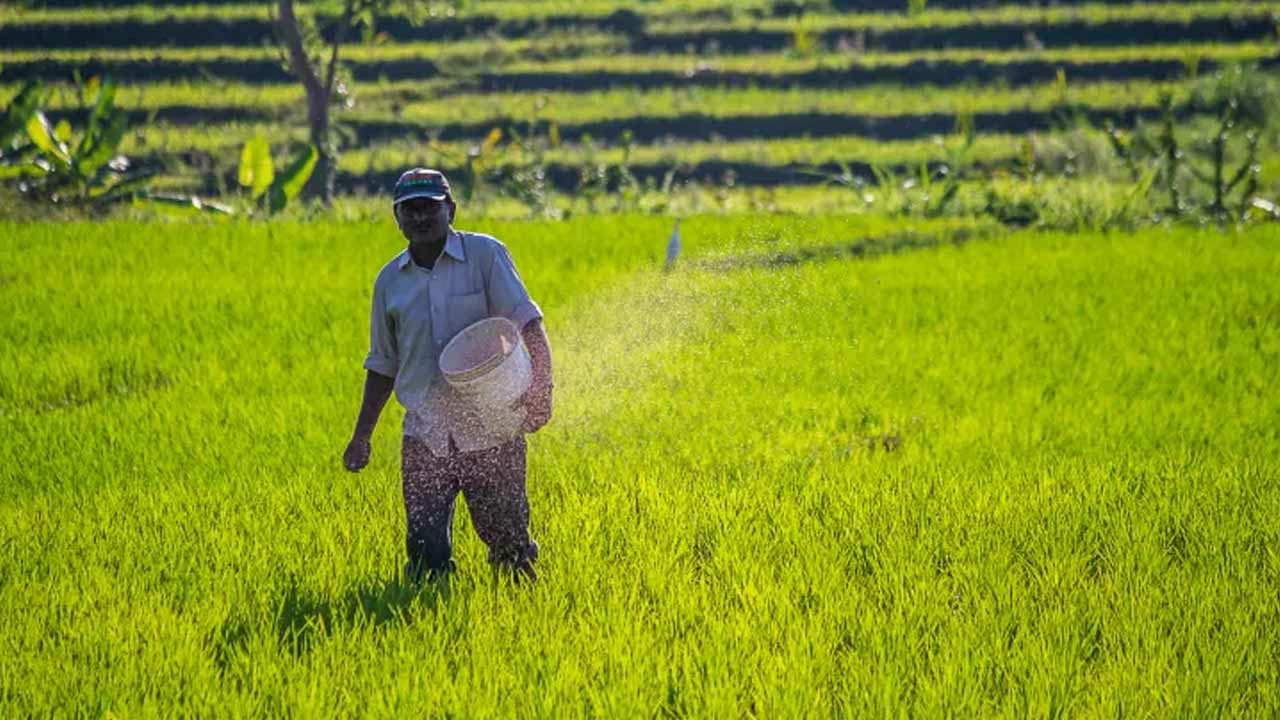Description

Disclaimer: Copyright infringement not intended.
Context
- India needs a second green revolution along with the next generation of reforms with a view to make agriculture more climate-resistant and environmentally sustainable, said an RBI article 'Indian Agriculture: Achievements and Challenges'.
Status of Agriculture in India
Some Positives
- Agriculture has traditionally been and continues to be the source of basic sustenance of 60% of the population.
- India had success in terms of production that has ensured food security in the country.
- The country is witnessing some strong initiatives that are sustainability-focused, tech-led and promote climate-resilient systems.
- Andhra Pradesh plans to become India’s first 100% “zero budget natural farming” state by 2027. In zero budget natural farming all crops are grown without chemicals, utilizing non-pesticide management techniques.
- Similarly, India’s 450 agri-tech startups are enabling farmers to try new tech solutions to become a sustainable and profit-yielding enterprise.
- These changes will play a huge role in national economy as the sector comprises of 16% of India’s GDP and 44% of total workforce employed.
- Despite all the success, agriculture today is plagued with myriad issues ranging from natural to man-made.
Challenges
- Food inflation and its volatility.
- Dependency on climate/weather and scarce natural resources.
- Small and fragmented land holdings.
- Lack of soil replenishment.
- Lack of adequate and appropriate storage facilities and other services in the supply chain including harvesting, packing, and transporting, etc.
- Current overproduction of crops like rice, wheat and sugarcane, has led to rapid depletion of the ground-water table, soil degradation and massive air pollution raising questions about the environmental sustainability of current agricultural practices in India.
- Crop productivity in India is much lower than other advanced and emerging market economies due to various factors, like fragmented landholdings, lower farm mechanisation and lower public and private investment in agriculture.
Recommendations made by the report
- A second green revolution focussed on the agriculture water-energy nexus, making agriculture more climate resistant and environmentally sustainable.
- The use of biotechnology and breeding will be important in developing eco-friendly, disease-resistant, climate-resilient, more nutritious and diversified crop varieties.
- Wider use of digital technology and extension services will be helpful in information sharing and generating awareness among the farmers.
- Supply-side interventions such as higher public investment, storage infrastructure and promotion of food processing are the need of the hour.
- Better post-harvest loss-management and a revamp of co-operative movement through the formation of farmer-producer organisations (FPOs) can arrest the volatility in food prices and farmers’ income and help harness the true potential of Indian agriculture.
To read about status of Agriculture in India in detail: Visit: https://www.iasgyan.in/blogs/status-of-agriculture-in-india
https://economictimes.indiatimes.com/news/economy/agriculture/india-needs-green-revolution-2-0-to-make-agri-more-climate-resistant-sustainable-rbi/articleshow/88956718.cms











